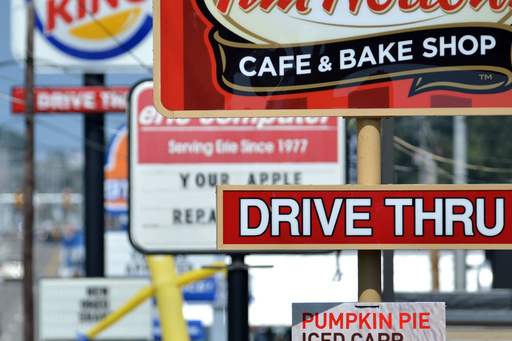
NEW YORK — Although many product prices have been on the decline this year, a variety of services continue to experience elevated inflation rates, creating challenges for consumers who are dining out, maintaining their vehicles, and managing insurance costs.
According to the personal consumption expenditures price index, which is closely monitored by the Federal Reserve, service prices increased by 3.7% in September compared to the previous year. In contrast, prices for goods have been decreasing, contributing to a reduction in overall inflation that is nearly reaching the Fed’s target rate of 2%.
Restaurants, which operate with narrow profit margins and face fierce competition to attract customers, are significantly affected by ongoing inflationary pressures. In September, inflation in the food services sector rose by 3.6%. Major chains like Chipotle and McDonald’s have indicated they anticipate ongoing inflationary pressures, primarily due to rising wage costs.
Increasing wages not only elevate operational costs for restaurants but also frequently lead to higher menu prices. This rise in cost has been amplified by mandatory minimum wage increases in states such as California.
In efforts to draw cautious spenders, establishments like McDonald’s are introducing various menu promotions as dining out becomes pricier when compared to home-cooked meals.
Moreover, inflation rates for home and auto insurance remain notably high. Insurance premiums for households have surged by 10.1% compared to a year earlier, while car insurance costs have risen by 6%. Insurance providers such as Allstate and Progressive attribute these escalating costs to increased storm damage and the higher expenses linked to repairs.
The real estate sector, particularly rental prices, is a significant contributor to services inflation, with overall housing costs increasing by 5.1% in September year-over-year. The travel industry is also grappling with persistent inflation, as air transportation costs saw a 4.1% increase in September.
On the other hand, the price of goods decreased by 1.2% in September and has been declining since late 2023. Nevertheless, food companies face ongoing pressure regarding pricing strategies. Many are reluctant to impose further price hikes on consumers, given the increasing caution surrounding spending habits.
In summary, prices for food and beverages rose by 1.2% in September, with notable price surges for items such as milk, eggs, and oils. Recently, Kraft-Heinz cautioned its investors that inflation in staples like coffee and dairy products is likely to impact its profit margins and operational income throughout the year.
